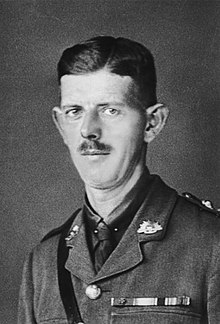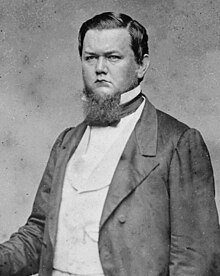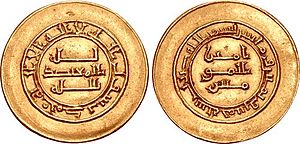Portal:History
The History Portal
History (derived from Ancient Greek ἱστορία (historía) 'inquiry; knowledge acquired by investigation') is the systematic study and documentation of the human past. History is an academic discipline which uses a narrative to describe, examine, question, and analyse past events, and investigate their patterns of cause and effect. Historians debate which narrative best explains an event, as well as the significance of different causes and effects. Historians debate the nature of history as an end in itself, and its usefulness in giving perspective on the problems of the present.
The period of events before the invention of writing systems is considered prehistory. "History" is an umbrella term comprising past events as well as the memory, discovery, collection, organization, presentation, and interpretation of these events. Historians seek knowledge of the past using historical sources such as written documents, oral accounts or traditional oral histories, art and material artefacts, and ecological markers.
Stories common to a particular culture, but not supported by external sources (such as the tales surrounding King Arthur), are usually classified as cultural heritage or legends. History differs from myth in that it is supported by verifiable evidence. However, ancient cultural influences have helped create variant interpretations of the nature of history, which have evolved over the centuries and continue to change today. The modern study of history is wide-ranging, and includes the study of specific regions and certain topical or thematic elements of historical investigation. History is taught as a part of primary and secondary education, and the academic study of history is a major discipline in universities.
Herodotus, a 5th-century BCE Greek historian, is often considered the "father of history", as one of the first historians in the Western tradition, though he has been criticized as the "father of lies". Along with his contemporary Thucydides, he helped form the foundations for the modern study of past events and societies. Their works continue to be read today, and the gap between the culture-focused Herodotus and the military-focused Thucydides remains a point of contention or approach in modern historical writing. In East Asia a state chronicle, the Spring and Autumn Annals, was reputed to date from as early as 722 BCE, though only 2nd-century BCE texts have survived. The title "father of history" has also been attributed, in their respective societies, to Sima Qian, Ibn Khaldun, and Kenneth Dike. (Full article...)
Featured picture
Did you know (auto generated)

- ... that no one laughed at the worst joke in legal history?
- ... that Dean Faithfull was the oldest player in NCAA Division II football history?
- ... that LGBT rights activist Kit Malone helped create the first transgender organized marching group in the Indianapolis Pride Parade's history?
- ... that the historic mansion Bulgur Palas in Istanbul hosted a birdhouse for hundreds of domestic canaries in one room during its ownership by the Ottoman Bank?
- ... that historically, native mercury was extracted from rocks mined in Idrija by washing them in the stream Nikova?
- ... that Veto, inspired by the history of the Polish–Lithuanian Commonwealth, is considered to be the first Polish collectible card game?
Marian Adam Rejewski (Polish: [ˈmarjan rɛˈjɛfskʲi] ⓘ; 16 August 1905 – 13 February 1980) was a Polish mathematician and cryptologist who in late 1932 reconstructed the sight-unseen German military Enigma cipher machine, aided by limited documents obtained by French military intelligence.
Over the next nearly seven years, Rejewski and fellow mathematician-cryptologists Jerzy Różycki and Henryk Zygalski, working at the Polish General Staff's Cipher Bureau, developed techniques and equipment for decrypting the Enigma ciphers, even as the Germans introduced modifications to their Enigma machines and encryption procedures. Rejewski's contributions included the cryptologic card catalog and the cryptologic bomb. (Full article...)
On this day
January 21: National Hugging Day (United States)
- 1793 – French Revolution: After being found guilty of high treason by the National Convention, Louis XVI was guillotined in Paris.
- 1919 – The First Dáil convened at the Mansion House in Dublin and adopted a declaration of independence calling for the establishment of the Irish Republic.
- 1951 – Mount Lamington, a volcano in Papua New Guinea, erupted (pictured) and killed more than 2,900 people.
- 1972 – Tripura, formerly part of the independent Twipra Kingdom, became a state of India.
- 2017 – Millions of people participated in the Women's March in Washington, D.C., and around the world to advocate for legislation and policies on human rights and other issues.
- Jeff Koons (b. 1955)
- Eusapia Palladino (b. 1854)
- Trương Tấn Sang (b. 1949)
- Frances Gertrude McGill (d. 1959)
Selected quote
It is of the nature of desire not to be satisfied, and most men live only for the gratification of it.
— Aristotle, 4th-century Greek philosopher
Related portals
More Did you know...
- ... that in 1898, the United States government annexed the Kingdom of Hawaii despite protestation from Queen Liliuokalani (pictured)?
- ... that Jean Thurel was a soldier in the French Régiment de Touraine for more than 75 years?
- ... that the severed head of Julia Martha Thomas — murdered, boiled and dismembered by her maid in 1879 — was found next door to Sir David Attenborough's house in 2010?
- ... that the 18th-century Indian automaton Tipu's Tiger shows a near life-size European being mauled by a tiger, and emits wails and grunts as well as containing a pipe organ?
- ... that Svið, a traditional Icelandic dish, consists of a sheep's head that has been cut in half, singed, and boiled with the brain removed?
- ... that, despite overseeing the construction of the crematoria and gas chambers at Auschwitz, what specifically shocked SS-Obersturmführer Robert Mulka at the camp was his colleagues' dress sense?
- ... that Tsar Alexander II of Russia had a special crystal bottle of Roederer champagne made for the Three Emperors Dinner in 1867 so that he could admire the bubbles?
- ... that the Gudea cylinders are the longest literary composition ever found in the Sumerian language?
Topics
Categories

History • By period • By region • By topic • By ethnic group • Historiography • Archaeology • Books • Maps • Images • Magazines • Organizations • Fictional • Museums • Pseudohistory • Stubs • Timelines • Chronology • People • Wikipedia historians
WikiProjects
![]() WikiProject History •
Ancient Near East • Australian History • Classical Greece and Rome • Dacia • Former countries • History of Canada • Chinese history • European history • Heraldry and vexillology • Indian history • Jewish history • Medieval Scotland • Mesoamerica • Military history • Middle Ages • History of Science
WikiProject History •
Ancient Near East • Australian History • Classical Greece and Rome • Dacia • Former countries • History of Canada • Chinese history • European history • Heraldry and vexillology • Indian history • Jewish history • Medieval Scotland • Mesoamerica • Military history • Middle Ages • History of Science
WikiProject Time • Days of the Year • Years
WikiProject Biography • Composers • Political figures • Saints • United States Presidents
Things you can do
 |
Here are some tasks awaiting attention:
|
Associated Wikimedia
The following Wikimedia Foundation sister projects provide more on this subject:
-
Commons
Free media repository -
Wikibooks
Free textbooks and manuals -
Wikidata
Free knowledge base -
Wikinews
Free-content news -
Wikiquote
Collection of quotations -
Wikisource
Free-content library -
Wikiversity
Free learning tools -
Wiktionary
Dictionary and thesaurus


![Image 1 Vidkun Abraham Lauritz Jonssøn Quisling (/ˈkwɪzlɪŋ/; Norwegian: [ˈʋɪ̂dkʉn ˈkʋɪ̂slɪŋ] ⓘ; 18 July 1887 – 24 October 1945) was a Norwegian military officer, politician and Nazi collaborator who headed the government of Norway during the country's occupation by Nazi Germany during World War II. He first came to international prominence as a close collaborator of the explorer Fridtjof Nansen, and through organising humanitarian relief during the Russian famine of 1921 in Povolzhye. He was posted as a Norwegian diplomat to the Soviet Union and for some time also managed British diplomatic affairs there. He returned to Norway in 1929 and served as minister of defence in the agrarian governments of Peder Kolstad (1931–32) and Jens Hundseid (1932–33). (Full article...)](http://upload.wikimedia.org/wikipedia/en/d/d2/Blank.png)




















































